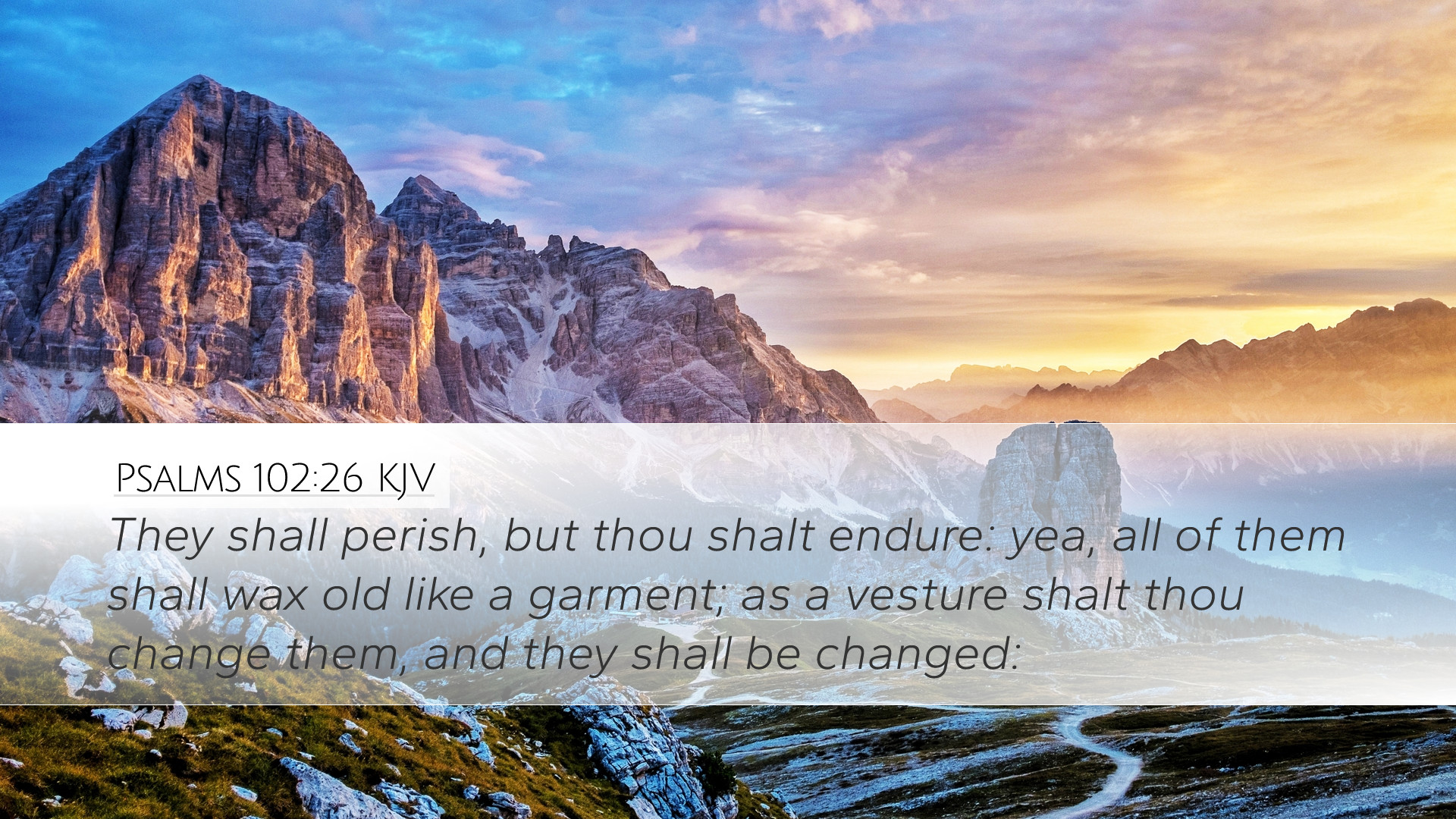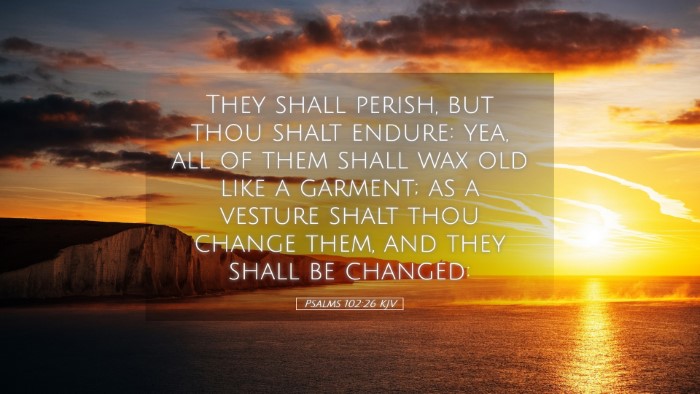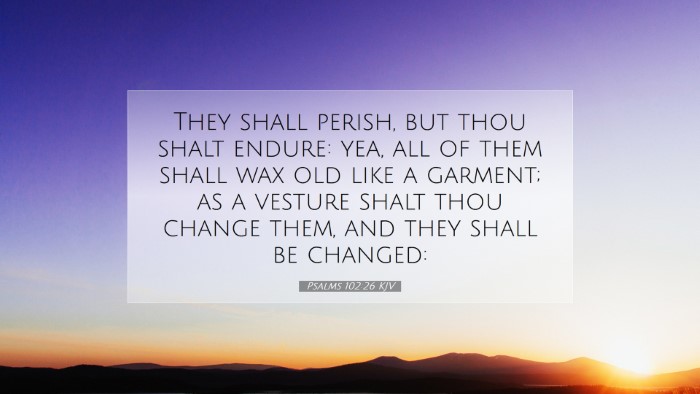Psalms 102:26 Commentary
Verse (Psalms 102:26): "They shall perish, but thou shalt endure: yea, all of them shall wax old like a garment; as a vesture shalt thou change them, and they shall be changed."
Introduction
This profound verse from Psalms epitomizes the contrast between God's eternal nature and the transient nature of creation. It serves as a theological reflection on divine permanence amidst the impermanence of worldly existence. Commentaries by Matthew Henry, Albert Barnes, and Adam Clarke provide rich insights into its meaning, implications, and applications for believers.
The Eternal Nature of God
Matthew Henry emphasizes the everlasting nature of God. In contrast to the heavens and the earth, which are created, God Himself is uncreated and exists in eternity. Henry notes that while everything in creation is subject to decay, God remains unchanged and eternal. This concept encourages believers to place their hope in God's immutable presence, offering comfort in times of chaos.
Albert Barnes elaborates that the phrase "thou shalt endure" highlights God's sovereignty over all creation. Even as the physical universe fades, God's plans and purposes remain steadfast. Barnes notes that this verse serves to remind us of the futility of relying on earthly things that will inevitably perish.
Adam Clarke interprets this enduring nature of God as a call to recognize the limitations of humanity. He provides a theological lens through which to view the permanence of God against the backdrop of human frailty. Clarke asserts that understanding God's eternity profoundly impacts how we approach our lives and our reliance on Him.
The Transience of Creation
The imagery of wax aging like a garment reinforces the transient nature of material existence. Matthew Henry remarks that just as clothing wears out and is replaced, so too does the created order succumb to wear and tear, a reality that resonates well in a world where change is the only constant.
Albert Barnes comments on the inevitability of this change, suggesting that all things created - including the heavens and earth - will eventually pass away. He draws parallels to the ephemerality of life itself, urging believers to focus on the eternal over the temporal.
Adam Clarke addresses the imagery within the context of God's providence. The transition of "vestures" signifies not merely aging but God's active role in changing the course of history and reality as we know it. Clarke highlights that God's will determines the lifespan of creation.
Theological Implications
This verse urges believers to reflect on their relationship with God in light of His eternal nature. Matthew Henry asserts that acknowledging God's permanence can lead to renewed faith and stability in trials. When everything around us is fleeting, the assurance of God’s enduring presence becomes a source of strength.
Albert Barnes emphasizes the comfort found in God's sovereignty. The certainty that God will remain intact amidst the world's instability leads to a profound peace that transcends understanding. This encourages believers to trust in the Lord's unfailing promises, especially in tumultuous times.
Adam Clarke underscores the transformative power of understanding God's nature. The verse serves as a reminder that our spiritual focus should be on the eternal rather than the temporal. By aligning ourselves with God's eternal purposes, we participate in a reality beyond the lifespan of our earthly existence.
Practical Applications
The insights from this verse compel us to consider practical applications for our lives as students and ministers of the Word.
- Prioritizing Eternal Values: How can we ensure that our daily lives reflect an emphasis on eternal rather than temporal values? Henry suggests practicing stewardship of our lives and resources with an eternal perspective.
- Finding Peace in God’s Sovereignty: Barnes encourages believers to cultivate a deep, abiding peace that flows from understanding God's unwavering control over creation and history.
- Embracing Change: Clarke implies that recognizing the inevitable changes of life can help us be compassionate and understanding toward others experiencing similar trials, reminding us of our need for God’s grace.
- Growing in Faith: Engaging with Scripture and deepening our relationship with God becomes essential in appreciating His eternal nature as described in this verse.
Conclusion
Psalms 102:26, through the collective insights of Matthew Henry, Albert Barnes, and Adam Clarke, encapsulates the profound truths about God's eternal character contrasted against the transient nature of creation. This poignant reminder serves to anchor our faith, inspire our understanding of God's sovereignty, and encourage us to focus on eternal realities in a changing world. In light of this verse, believers are called to draw closer to God, anchoring their hope in His everlasting nature amid the temporary trials of life.


